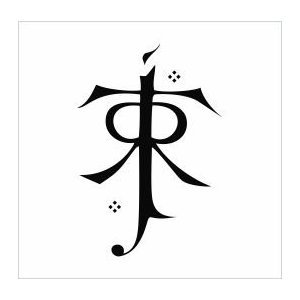I have always been more partial to The Lord of the Rings
than The Hobbit, possibly due to my having watched the movies first, but also
due to the level of maturity and detail presented in the more adult Lord of the
Rings trilogy. Much of what has always drawn
me to Tolkien, and the high fantasy genre in general, has been the conveyed
envisioning of an entirely foreign world with its own history, rules, and
peoples with entirely different ways of being which beckon the audience to step
into the position of something foreign to themselves. Tolkien was certainly not the first to do
this, but he raised the bar and held it there for a long time. His work with languages and developing the
cultural backgrounds of his world are what give his work so much depth.
It was not until my freshman year of high school that a
friend of mine got me to watch Peter Jackson’s Lord of the Rings trilogy,
against the will of my protective parents.
I watched the entire series in succession and was immediately propelled
into a fascination with the genre of epic fantasy which would inevitably put me
at odds with my family, compelled by a literalist, puritanical interpretation
of the bible which lead them to view any fiction portraying magic or “pagan”
elements in a positive light as ‘the work of the devil’. CS Lewis was okay because he was Protestant
and used Protestant-approved symbolism, but Tolkien was Catholic, and my family
resents the Catholic church. It wasn’t
long before I had discovered Dungeons & Dragons, which provided a whole new
level of detail and autonomy relative to the classic Tolkienesq fantasy world
and it encouraged me to get involved with world-creation seriously for the
first time. I have not yet read all of
Tolkien, but as he is the most renowned world-builder among fantasy writers, it
is a priority of mine to do so if I wish to succeed in my own world-building
endeavors.

No comments:
Post a Comment